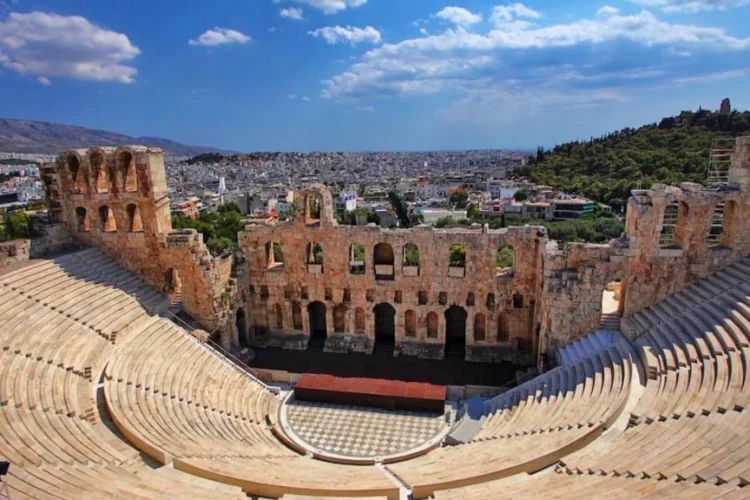Greece, located in Southeastern Europe is a cradle of Western civilization and a treasure trove of ancient ruins, stunning temples, and historical landmarks. Whether you’re a history enthusiast or simply someone who appreciates the beauty of ancient architecture, Greece offers a wealth of sites that transport you back to the times of gods and heroes.
Visiting these ancient wonders allows travelers to walk in the footsteps of the gods, philosophers, and heroes who shaped history. Whether you're exploring grand temples, ancient theaters, or sacred sanctuaries, Greece offers a rich tapestry of history waiting to be discovered.
Check out this list of ten must-visit historical sites in Greece that should be on every traveler's itinerary.
1. The Acropolis of Athens
The Acropolis, perched high above Athens city, is perhaps the most iconic symbol of ancient Greece. Built-in the 5th century BCE, this majestic structure represents the pinnacle of Doric architecture. The crown jewel of the Acropolis is the Parthenon, a temple dedicated to Athena, the city's patron goddess.
2. Delphi
Delphi once considered the center of the world in ancient Greek religion, is home to the Oracle of Apollo, where priestesses would deliver prophecies believed to be messages from the gods. The site includes the Temple of Apollo, the ancient theater, and the stadium where the Pythian Games were held. Delphi's stunning location on the slopes of Mount Parnassus adds to its mystical aura.
3. Olympia
Olympia, the birthplace of the Olympic Games, is one of the most important archaeological sites in Greece. The ancient stadium, where athletes once competed for glory, still stands, along with the remains of temples dedicated to Zeus and Hera. The on-site museum contains a remarkable collection of artifacts, including the famous statue of Hermes by Praxiteles.
4. Mycenae
Step back into the Bronze Age with a visit to Mycenae, the ancient city ruled by King Agamemnon, the leader of the Greeks during the Trojan War. The site is famous for its imposing Lion Gate, the royal tombs, and the remains of the palace complex. The Treasury of Atreus, a monumental Tholos tomb, is another highlight of Mycenae.
5. Epidaurus
Epidaurus, known for its ancient theatre that was renowned for its extraordinary acoustics, was a significant center of healing in ancient Greece. The theater, still used today for performances, is part of a larger sanctuary dedicated to Asclepius, the god of medicine. The nearby museum offers a glimpse into the medical practices of the time.
6. Knossos
The Palace of Knossos, located on the island of Crete, is the largest Bronze Age archaeological site in Greece which is considered the oldest city in Europe. Knossos is associated with the legend of the Minotaur, a mythical creature that was half-man, half-bull. The complex maze of rooms, frescoes, and the famous throne room are a testament to the sophistication of the Minoan civilization.
7. Meteora Monasteries
Meteora, perched atop towering rock pillars are monasteries built by monks seeking solitude and safety from invaders which are not just a historical site but also a place of spiritual significance. The monasteries, some of which date back to the 14th century, offer breathtaking views and a unique glimpse into the monastic life of the past.
8. Corinth
Ancient Corinth was one of the most powerful and wealthy city-states in ancient Greece. The archaeological site includes the Temple of Apollo, the ancient agora, and the remains of the Roman Forum. Corinth is also closely associated with the Apostle Paul, who spent significant time here spreading Christianity.






